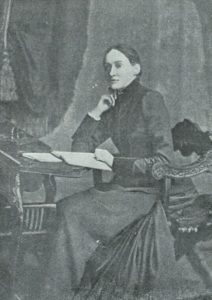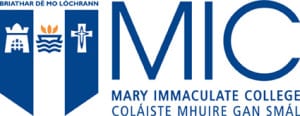Emerging Voices: An Interview Series
Anna Pilz & Whitney Standlee
Introduction
More than 7 years ago now, we eagerly but nervously opened anonymous readers’ reports on our book proposal for the edited collection Irish Women’s Writing, 1878-1922: Advancing the Cause of Liberty. The opening of one of them still stands out to this day: “The editors of this volume are unknown to me but they have gathered together a number of distinguished and internationally recognized contributors in the field of Irish Studies, including Heidi Hansson, Margaret Kelleher and James H. Murphy, so the volume should attract attention.”
Unknown within the academic publishing sphere we certainly were. When we dreamed up the idea for an edited collection on Irish women’s literary history over an afternoon tea, we were both still postgraduate students at the Institute of Irish Studies at the University of Liverpool. We contacted scholars who we’d met at conferences and who we could reach through our established network. To our surprise, we had an overwhelmingly positive response, and the volume took shape. With abstracts from confirmed contributors in hand, we pulled together our very first book proposal and sent it off to Manchester University Press. No doubt, it was the weight of the international standing of our contributors that secured us our very first academic publishing contract. We are grateful to all of them for their enthusiasm for the project and their trust in us as first-time editors.
What this reader’s report shows, though, is the hierarchy of academic publishing and what that means for the visibility of research content. Their implication is that the volume will ‘attract attention’ not primarily via the research topic, but rather by who conducts that research and their respective standing in a field. For research to be visible, relevant, worthy of publication and – in the end – citation, the name is important. The weight behind a name is, of course, an established publication record, but also institutional affiliation and evidence that their work is gaining traction through consistent reference in the work of others.
Research that innovates and challenges established narratives of literary history and the canon – especially women’s literary history – relies on creative methodologies in approaching archives, persistence, and, as many interviews in the “Research Pioneers” series have highlighted, networks and collaborations. Certainly, without our network and a collaborative spirit Advancing the Cause of Liberty would likely never have seen the light of day. Following on from our popular series of interviews with ‘Research Pioneers’, we are delighted to turn our attention to the next generation(s) of researchers into Irish women’s writing.
In our new interview series dedicated to ‘Emerging Voices’, we will showcase and promote the work of current doctoral students and/or early career researchers who are working in the field of Irish women’s writing in the period between 1880 and 1920.
Early career scholars are facing numerous challenges within the academy. As Deirdre Flynn has argued in her widely-read article “On Being Precarious” in the Irish University Review, “We need the help of our senior colleagues in secure jobs to shout for us.” Not only on committees and within institutional structures, we would argue, but also in the publishing landscape of academia, the exciting work that is being done by early career scholars deserves wider visibility within the academy, consistent advocacy and promotion, and more inclusive politics of citation. In an academic climate in which long-term precarity is increasingly the norm for early career scholars, it is more important than ever to amplify those voices that are emerging as among the most promising and innovative in our still woefully under-researched field. This series of interviews represents our first contribution to what we hope will be an ongoing and widespread effort.
- Emerging Voices 1: Nora MoroneyNora Moroney has a research specialism in Irish literary cultures and their influence on and connection with the late-Victorian British periodical press. Her publications to date include articles on Irish women journalists in the Victorian Periodicals Review, focusing particularly on the writings of Alice Stopford Green…
- Emerging Voices 2: Shirley-Anne GodfreyShirley-Anne Godfrey is an emerging Irish playwright, currently researching how drama and theatre can be used as methodologies in rehabilitating the literary legacies of Lady Augusta Gregory (1852-1932) and Frances Browne (1816-1879) for her PhD at NUI Galway. Funded by the Irish Research Council,…
- Emerging Voices 3: Tara GiddensTara Giddens’ PhD project, ‘Investigating the Irish New Woman: Journalists in Media and Fiction’, offers exciting new research into Irish women’s contributions to popular culture and journalism. Focusing on the journalistic and literary careers of Kathleen Coleman, Charlotte O’Conor Eccles and L. T. Meade,…
- Emerging Voices 4: Isobel SigleyIsobel Sigley is currently undertaking a research studentship at Loughborough University, supervised by Dr Sarah Parker and Dr Claire O’Callaghan. Her research considers women’s short fiction from the late nineteenth century through to the early twentieth century and explores the ways in which touch,…
- Emerging Voices 5: Maria MulvanyMaria Mulvany is an early career researcher funded by an Irish Research Council Postdoctoral Fellowship. Based at University College Dublin (UCD), Mulvany’s project “Ghostly Fictions: Haunting, Trauma and Time in Contemporary Irish Historical Fiction” engages with recent literary, queer and psychoanalytic theories of spectrality…
- Emerging Voices 6: Éadaoin ReganÉadaoin Regan is currently in the final year of her PhD in the School of English and Digital Humanities, University College Cork. Her thesis, A method to the madness?: Representations of psychological disorder in Irish women’s fiction 1870-1914, employs feminist psychoanalysis and postcolonial theory…




